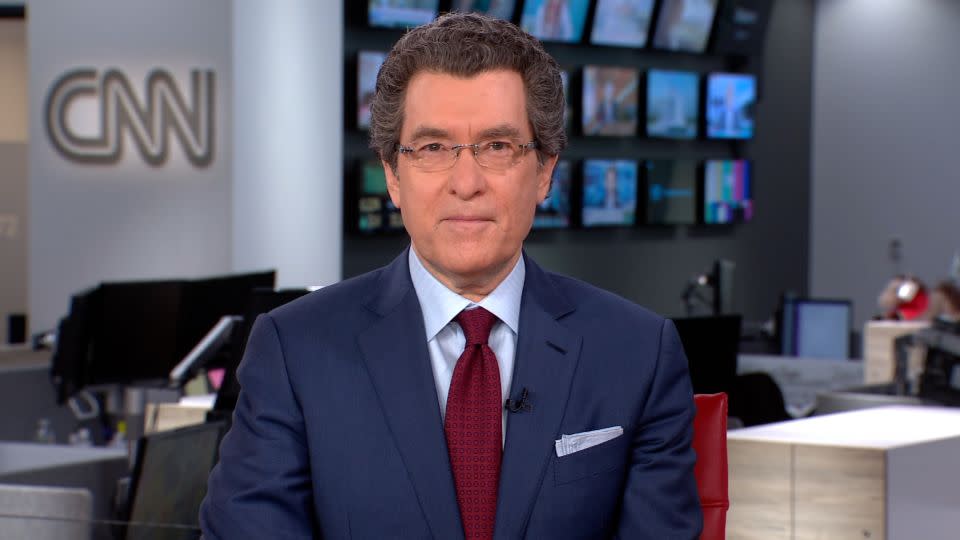Opinion: Don’t call it a ‘hush money’ case
Editor’s Note: Norman Eisen is a CNN legal analyst and editor of “Trying Trump: A Guide to His First Election Interference Criminal Trial.” He served as counsel to the House Judiciary Committee for the first impeachment and trial of Donald Trump. The views expressed in this commentary are his own. Read more opinion at CNN.
Judge Juan Merchan began the long-awaited Manhattan criminal trial of former President Donald Trump on Monday by interviewing prospective jurors. Debate has been raging about every aspect of this historic trial – including what to call it. It is the first of four expected criminal trials involving Trump, and the only one in American history to feature a former president as the defendant.

Although it has long been referred to as the “hush money” case, the judge’s first substantive words to the jury made clear that is wrong. We should call it an “election interference” trial going forward.
When the judge described the case to prospective jurors, he said. “The allegations are in substance, that Donald Trump falsified business records to conceal an agreement with others to unlawfully influence the 2016 presidential election.” (Trump has pleaded not guilty and denied all wrongdoing in the cases against him.)
Merchan’s point: The core issue in the trial that began Monday is not the payments to adult film star Stormy Daniels in October 2016 to conceal her claimed affair with Trump (he denies the affair took place). The core issue is why Trump made them.
Paying hush money by itself is not a crime. The crime alleged in this case is felony document falsification, as the judge detailed. That requires intent to conceal, aid or commit another crime. Here, the prosecution alleges that the intent was to violate federal campaign finance laws and also the state statute prohibiting the “unlawful influence” of an election — i.e., election interference.
That point was also cleverly hammered home during the first half of Monday’s proceedings. The morning was devoted to resolving the remaining legal disputes before the trial can begin, mostly about what evidence could be used. Assistant District Attorney Joshua Steinglass skillfully advanced the election interference theory by structuring his evidentiary points in chronological order within that frame.
Steinglass began with issues relating to the alleged August 2015 Trump Tower meeting where Trump, his former fixer Michael Cohen and David Pecker, former chairman and CEO of American Media, which publishes the National Enquirer, allegedly agreed to benefit Trump’s campaign through a “catch and kill” scheme of buying salacious stories and then burying them to diminish their ability to taint Trump’s presidential campaign.
Steinglass then raised legal issues that hit the other key moments as the alleged scheme unfolded throughout 2015 and 2016, ending on the two crucial players in the payoff: Daniels and Cohen. It was a virtuoso summary of what we can expect at trial.
Of course, it’s one thing, as the judge also explained, for the DA to make those allegations. It’s another thing to prove them, and District Attorney Alvin Bragg must now do that. Trump, as the judge reminded the prospective jurors, is innocent until proven guilty and the case against him must be proven beyond a reasonable doubt. Trump says he is innocent and will by all indications vigorously contest the proceedings.
But we need to be accurate about what the accusation is that will now be the subject of that contestation. In a new book, I contend that given the indictment and the likely proof, using the “hush money” label distracts from the main point of the case and diminishes its seriousness. Eminent experts increasingly agree, including one of our nation’s leading constitutional scholars and other prominent legal commentators.
The essence of the charges here, therefore, are as significant in their own way as the ones concerning election interference in the 2020 campaign that have gotten more attention, a federal case brought by special prosecutor Jack Smith and a Georgia case brought by Fulton County DA Fani Willis.
Trump’s alleged 2020 attempt to overthrow our government distorts perceptions of how serious the charges related to the 2016 election are. We can’t allow the extreme nature of Trump’s later behavior to change the benchmark for what is a serious alleged offense. The Manhattan case meets that standard – and then some.
Election interference skeptics contend the charges here are for document falsification by the Trump organization in 2017, after the 2016 election concluded, to hide what happened the year before from being revealed. How can we call this an election interference trial, they ask, if the election was already over when the 34 alleged document falsification crimes occurred?
These questions misunderstand that the payment to Daniels was itself allegedly illegal under federal and state law, and was plainly intended to influence the 2016 election. Cohen, as an individual, was limited by law to $2,700 in contributions to the campaign. Yet he transferred $130,000 to benefit the campaign, allegedly at Trump’s direction.
That is why Cohen pleaded guilty to federal campaign finance violations (in addition to other offenses), for which he was incarcerated. And no one can seriously dispute that the reason he and Trump allegedly hatched the scheme was to deprive voters of information that could have changed the outcome of an extremely close election.
The legitimacy of American governance rests upon the honesty of our elections. When information is withheld from voters, as Bragg alleges happened here, that undermines democracy. Calling this trial a mere “hush money” case risks minimizing what’s at stake. It is an election interference one and we should say so.
For more CNN news and newsletters create an account at CNN.com





